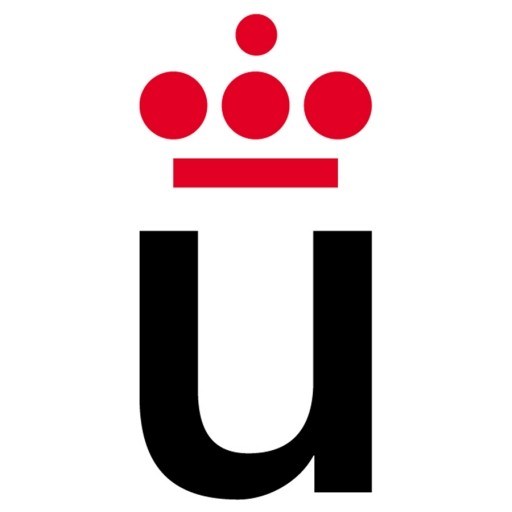Photos of university / #ouranu
From the secret language of tango dancers to the intricacies of political change in Cuba, this degree will fly you to Latin America (quite literally, and probably in your fifth semester of study).Latin America's history is a collision of culture and politics, wealth and poverty. In this course you will study a history of corruption, colonisation and celebration.Off the back of its traumatic history, Latin America is growing economically at breakneck speed and in this course you will move along with it.For aspiring comerciantes and cultural buffs alike, our degree immerses you in a region of extremes.
Employment Opportunities
Graduates may find work in policy development, government, private business, tourism, trade, foreign affairs and may other fields.
Learning Outcomes
Successful completion of this program enables students to:
- identify and differentiate the diverse social, political and economic systems that comprise contemporary Latin America
- identify and critique current political debates, and the international relations and interactions of Latin American countries with the rest of the world
- define historical origins of contemporary Latin America, especially the interaction between the indigenous societies of the region and European societies
- evaluate theories of development and underdevelopment as they relate to the Latin American context
- communicate in the Spanish language (graduates' proficiency will vary on the level of language completion)
- apply skills and knowledge gained practical experience of studying and living in Latin America.
The Latin American Studies program at the Australian National University offers students a comprehensive and interdisciplinary exploration of the diverse cultures, history, politics, societies, and economies of Latin America. This program is designed to provide a deep understanding of the regional dynamics, historical developments, and contemporary issues facing Latin American countries. Students will engage with a variety of subjects including Latin American literature, social movements, political economies, environmental challenges, and indigenous cultures, enabling them to develop a nuanced perspective on the region’s complexities.
The curriculum integrates insights from history, anthropology, political science, geography, and literature, ensuring a broad and multi-faceted understanding of Latin America. Core courses introduce students to the historical background and cultural diversity of the region, from pre-Columbian times through colonialism to modern nation-states. The program also features specialized courses on key themes such as urbanization, human rights, social justice movements, economic development, and migration.
Students will have opportunities for research projects, community engagement, and internships that offer practical experience and deeper regional insights. The program encourages critical analysis of contemporary issues such as inequality, environmental sustainability, democracy, and regional integration. Additionally, students can participate in language courses to improve proficiency in Spanish or Portuguese, facilitating more profound engagement with primary sources and regional discourse.
Graduates of the Latin American Studies program at ANU will be well-equipped for careers in international development, diplomacy, journalism, academia, and non-governmental organizations, among others. They will possess a strong cultural awareness and analytical skills necessary to contribute to cross-cultural understanding and sustainable development initiatives. The program aims to foster a global perspective rooted in a rich knowledge of Latin America, preparing students to become informed and engaged global citizens.
The Honours program in Latin American Studies at the Australian National University is designed to provide students with an in-depth understanding of the social, political, cultural, and economic developments across Latin America. To be eligible for entry into the Honours program, students are typically required to have completed a relevant undergraduate degree with a strong academic record, demonstrating proficiency in areas such as history, politics, anthropology, or related disciplines. The program duration is usually one year full-time, though part-time options may be available subject to university policies.
The curriculum emphasizes advanced coursework in Latin American history, politics, literature, and culture, often including language studies to enhance regional proficiency. Students are expected to undertake independent research projects under the supervision of faculty members with expertise in Latin American studies. The research component culminates in the submission of a thesis or equivalent substantial written work that demonstrates critical analysis, methodological rigor, and original contribution to the field.
Program-specific requirements include completing core courses in Latin American studies themes, which may involve topics such as post-colonialism, indigenous movements, economic development, and regional integration. Electives allow students to tailor their studies to specific interests within Latin America. Additionally, students are encouraged to participate in seminars, conferences, and study-abroad opportunities that provide immersive learning experiences within the region.
Assessment methods typically involve essays, research proposals, presentations, and the thesis. Language proficiency in at least one Latin American language, such as Spanish or Portuguese, is highly recommended and may be a prerequisite for certain components of the program. The program aims to develop research skills, cultural literacy, and critical thinking, preparing graduates for careers in academia, government, non-governmental organizations, or private sectors focused on Latin America.
Throughout the program, students are supported by academic advisors who guide their research and professional development. The Honours program in Latin American Studies at ANU adheres to university standards for academic integrity, quality assurance, and interdisciplinary scholarship, ensuring graduates possess the analytical capability and regional expertise necessary for successful careers related to Latin America.
The Australian National University offers various financial assistance options for students enrolled in Latin American Studies programs. Prospective and current students can explore scholarships, grants, and financial aid opportunities designed to support their academic pursuits. The university provides merit-based scholarships for high-achieving students, which may include the ANU Chancellor's International Scholarship and the Latin American Studies Merit Scholarship. Additionally, students can access government-funded loans and financial aid schemes, such as the Australian Government's FEE-HELP program, which assists eligible students in covering tuition fees. The university also offers other financial support programs tailored for domestic and international students, including bursaries and fellowships for specific research projects or academic excellence. Students are encouraged to contact the ANU Student Services or visit the official ANU Scholarships webpage for detailed information on eligibility criteria, application processes, and deadlines. Many students finance their studies through a combination of personal savings, family support, scholarships, and government aid. International students should also consider external funding options such as bilateral government scholarships or private foundations that support Latin American studies and related fields. The university’s Financial Assistance Office provides guidance to help students identify suitable options based on their individual circumstances. Overall, ANU strives to make Latin American Studies accessible by offering a comprehensive suite of financial aid programs, ensuring that students can focus on their academic and research interests without undue financial burden.
Latin American Studies at the Australian National University offers a comprehensive interdisciplinary program designed to provide students with an in-depth understanding of the history, culture, politics, and societies of Latin America. The program integrates perspectives from various disciplines such as anthropology, history, political science, and cultural studies to equip students with a well-rounded knowledge of the region's complex social dynamics. Students have the opportunity to explore topics including Latin American literature, indigenous rights, social movements, economic development, and regional integration. The program emphasizes critical analysis and encourages engagement with contemporary issues facing Latin American countries, such as democracy, inequality, environmental challenges, and migration. Through a combination of coursework, research projects, and possibly fieldwork, students develop analytical skills and a nuanced appreciation of Latin America's diverse cultural heritage and political landscape. The program is suitable for those interested in careers in international development, government, non-governmental organizations, academia, journalism, and cultural diplomacy. The university’s strong links with Latin American institutions and scholars provide students with valuable networking opportunities and access to a rich array of resources, including libraries, archives, and regional experts. Students may have the chance to participate in special seminars, conferences, and study trips that enhance their learning experience. The program prepares graduates to understand and contribute to discussions on Latin American issues at a global level and to work effectively within multicultural and international environments.









